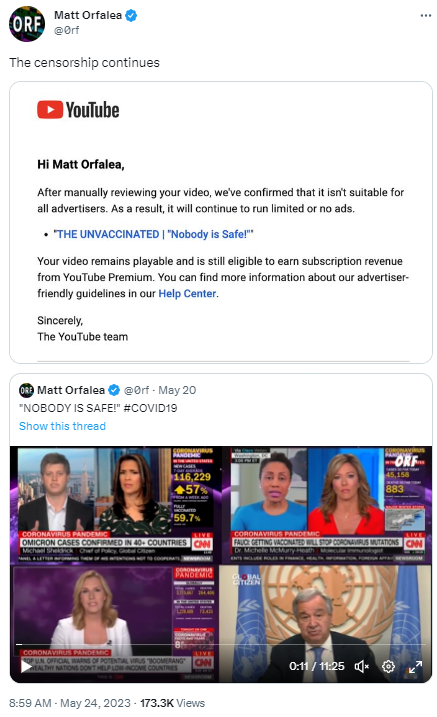The Insane U.S. Foreign Policy Regarding Ukraine that Has Needlessly Brought the World to the Brink of Nuclear Annihilation
I have encountered many people who have strong opinions about the Ukraine War. Their opinions go something like this:
Putin is Bad. He is Evil Like Hitler. Putin invaded Ukraine. He must be pushed back out. Or else he will invade other countries, just like Hitler did.No, these are not 8-year olds. They are middle aged adults. They proudly admit to me that they know next to nothing about pre-2022 Ukraine.
Now consider this succinct history of the conflict offered by comedian Dave Smith during an discussion with Joe Rogan:
[T]he list of people with in the government within the national security apparatus, who completely opposed NATO expansion is really impressive and long. There's a lot of really wise people within the government who were completely against NATO expansion in the 90s. When it first started, at least three Secretaries of Defense, Robert McNamara, Robert Gates, George W. Bush, and Barack Obama's Secretary of Defense, William Perry, who was Bill Clinton, Secretary of Defense and the Secretary of Defense at the time. They all opposed [NATO expansion] in the strongest possible language, and all explicitly for the reason that this will provoke a conflict with Russia.
They were like George Kennan, who was the founder of the containment strategy, the old school cold warrior. There's this great interview he gave with Thomas Friedman from the New York Times, you can find it online. And it's in the 90s when they're doing the first round of NATO expansion. And he is furious. His anger comes through the page when you're reading it, because he's like, What are you guys doing? We won the Cold War. We won. And now you're picking a fight with Russia?. And this isn't Vladimir Putin's Russia. This was Boris Yeltsin and these aren't the Soviets. These aren't the communists. These are the heroes who overthrew them. Why are we picking a fight with them? [Kennan] was a cold warrior. He was like, You're throwing away my life's work. And he said, and this was a really a crazy prediction, really ominous. He said, the people who are advocating expanding NATO are going to continue advocating expanding it and expanding and expanding it, and then there will be a Russian reaction. And then when there's the Russian reaction, they're going to say, see, that's proof that we have to keep expanding it. And damn, if he wasn't right. If he wasn't right about that.
[More . . . ]




